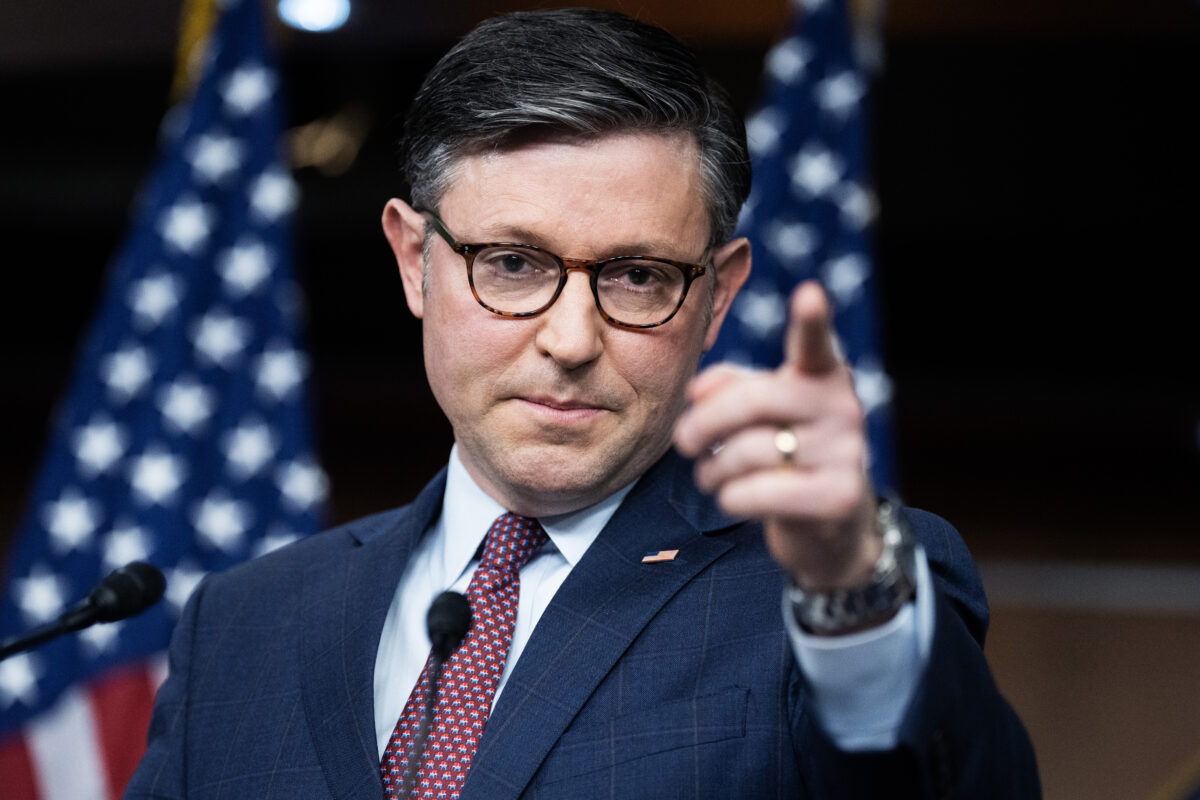Burning Robert E. Lee Statue Hints at Sinister Motives: Expert
As social justice leaders and media celebrate the melting and remolding of the Robert E. Lee statue in Charlottesville, Virginia, into a new public artwork, one history scholar warns of the dangers of erasing the past.
In an interview with The Epoch Times, Robert Natelson, a former constitutional law professor and senior fellow in constitutional jurisprudence at the Independence Institute in Denver, compared the removal of the statue to the Ministry of Truth’s incineration of historical documents in the memory hole in George Orwell’s “1984.”
“Why did they have that system by which they rewrote history in ‘1984’?” Mr. Natelson asked. “They had that system so that the elite would have unlimited power over everybody else. Accompanying the small-minded ignorance and bigotry of people who want to destroy historical monuments, ultimately there’s an agenda of enabling the elite to govern us by erasing our societal memory and then rewriting it to serve themselves.”
The sculpture of the Confederate general was removed by city officials in 2021 after several legal battles.
“Taking down this statue is one small step closer to the goal of helping Charlottesville, Va., and America grapple with the sin of being willing to destroy black people for economic gain,” said then-Charlottesville Mayor Nikuyah Walker the day the statue was removed.
Now, according to NPR, the 10,000-pound bronze sculpture is being melted down in an undisclosed location to protect the foundry from repercussions.
Telling a New Story
Those who spoke to NPR framed the metallurgical process as an allegory for transmutation and reparation for having lived in the shadow of an oppressive symbol of the past.
Andrea Douglas, executive director of the Jefferson School African American Cultural Center that is leading the project, told NPR that the removal is an act of deconstructing myths that have surrounded Robert E. Lee.
“We are turning swords into something else,” said Ms. Douglas. “That saber is the object of violence and it was the object of power, the object of conquest. I think that is an important symbol to really sort of dig into.”
Ash-Lee Woodard Henderson, co-executive director of the Highlander Research and Education Center, told NPR that it’s an act of reparation that will allow for the telling of a “new story.”
“I think this is a joyful occasion in a really dire strait of political nastiness that we’ve been surviving,” she said.
The statue was the site of a 2017 rally protesting its removal that ended in one protester driving his car into a group of counterprotesters, killing one and injuring several others.
‘Ignorance and Malice’
Methodist minister Rev. Isaac Collins blamed the violence on the sculpture, telling NPR it has cost the city bloodshed.
“And it’s never going to be put back together the way it was,” he said.
However, Mr. Natelson argues that the call for the removal of the statues telling the story of America’s past is driven by “ignorance and malice.”
“It’s a failure to acknowledge that even a defeated enemy can be a great man,” he said.
He referenced the George Washington statue at Trafalgar Square in London.
“Think about that,” he said. “The British have a statue of George Washington, a man who fought against the British Empire. Why did they do that? Is it because they think Washington was on the right side? No, it’s because they recognized that Washington had great virtues that all of us should emulate.”
To recognize the virtues in people who fought on the defeated side displays well-rounded intelligence, he said.
“Ripping down statues of great people because they fought on the wrong side is a mark of bigotry and pusillanimity,” he said.
This doesn’t mean one should celebrate enemies such as Adolf Hitler, Mr. Natelson said. “He had no significant virtues and fell well below the standards of his own time,” he said.
However, although judged and condemned by the current social-justice-warrior lens for fighting in the Confederate Army, Robert E. Lee was multifaceted, displaying more good traits than bad, he said. In addition to freeing his own slaves, he was a brilliant engineer and educator.
“Of all people, Ulysses Grant commended his leadership in the Mexican-American War for saving American lives and shortening the war.”
‘Social Amnesia’
It’s impossible for someone today to understand the context of the time in which Gen. Lee made his decisions, Mr. Natelson said.
“He had a difficult choice to make between the United States and Virginia,” he said. “I don’t know if I would have made the same choice.”
But what is clear, Mr. Natelson said, is Gen. Lee’s contribution to American culture, and to cancel out his legacy is to give in to an emerging tyranny.
“It’s dangerous because our ability to function as a society depends largely on our understanding of history,” he said.
Like a person, a society with no memory can’t function, he said.
“The society’s memory we call history, so when we blot out the examples of people like Robert E. Lee, we essentially create social amnesia,” he said.
Rather than erasing controversial symbols, how can we engage in meaningful dialogue and education to foster a deeper understanding of their historical significance
The Danger of Erasing the Past: The Melting of Robert E. Lee Statue in Charlottesville
The recent transformation of the Robert E. Lee statue in Charlottesville, Virginia into a new public artwork has been hailed by social justice leaders and the media as a step towards progress and inclusivity. However, one history scholar, Robert Natelson, warns of the dangers that come with erasing the past.
In an interview with The Epoch Times, Natelson, a former constitutional law professor and senior fellow in constitutional jurisprudence at the Independence Institute in Denver, draws a parallel between the removal of the statue and the Ministry of Truth’s incineration of historical documents in George Orwell’s acclaimed novel, ”1984.”
Natelson questions the motivations behind rewriting history in Orwell’s dystopian society, stating, “They had that system so that the elite would have unlimited power over everybody else. Accompanying the small-minded ignorance and bigotry of people who want to destroy historical monuments, ultimately there’s an agenda of enabling the elite to govern us by erasing our societal memory and then rewriting it to serve themselves.”
While the intentions behind the remolding of the Lee statue may be rooted in creating a more equitable and inclusive society, it is crucial to recognize the importance of preserving history. Erasing or reshaping historical monuments and artifacts can have unintended consequences, leading to a distorted understanding of the past and its lessons for the present and future.
History is not something that should be tampered with lightly. It serves as a testament to the triumphs and tragedies of human civilization, providing valuable insights into our collective identity and societal development. By erasing or rewriting history, we risk losing vital knowledge and understanding of our past, and consequently, our ability to learn from it.
Preserving historical monuments, even those that may be viewed as controversial or problematic in today’s context, allows us to confront and learn from the complexities of our past. Rather than erasing these symbols, we should engage in meaningful dialogue and education to foster a deeper understanding of their historical significance and the lessons they offer.
The remolding of the Robert E. Lee statue may be seen as a symbol of progress for some, but it is essential to approach such transformations with caution. We must constantly evaluate the ways in which we engage with history, ensuring that we prioritize the preservation and understanding of our collective narrative.
Instead of erasing the past, let us strive for a society that acknowledges and learns from its history. Only through a comprehensive understanding of our past can we build a more just and inclusive future.
" Conservative News Daily does not always share or support the views and opinions expressed here; they are just those of the writer."




